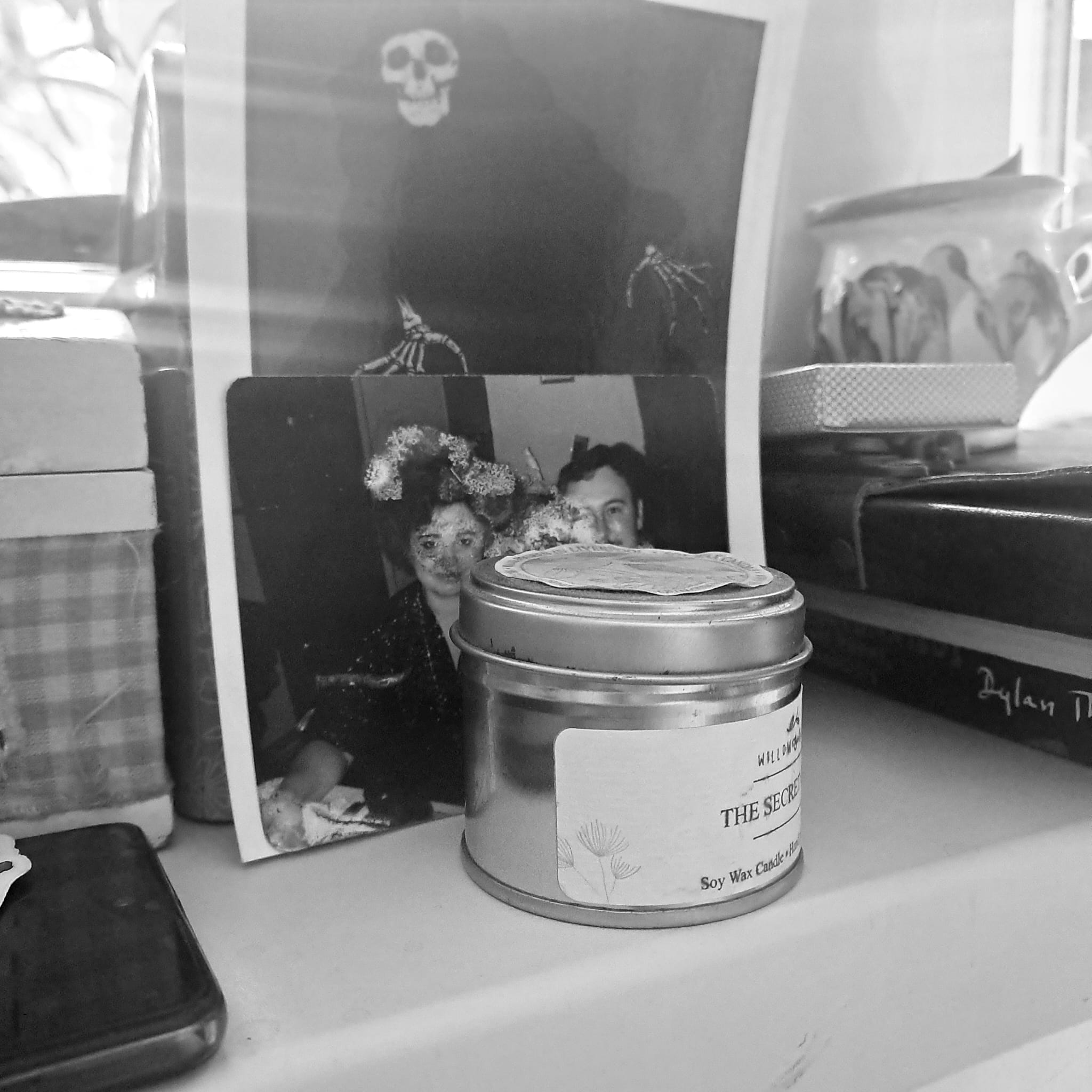My mom's sister is at death's door.
It's been a strange few days, of condolences arriving early, and trying to grapple with the profound hollow that I (and we) feel inside. It's a different kind of hollow. It came at the same time as almost losing another sister, my aunt, a loss we were all terrified by.
I'm fascinated by words, aren't you? How I refuse to use the word "aunt" in relation to the one dying, yet I do when I speak of the one who thankfully did not. It's a different kind of affection. One seems an unbearable loss, a heavy tragedy. One is one of the strongest women I know, such a bastion of courage and love. The other, I've only known very briefly, in passing.
She lived abroad for all my life, this dying woman. She moved before I was even born, when my mum herself was younger than I am (I think). She made her life elsewhere, though tragically, she made little life there at all. It seems to me she lived all her life, the way some emigrants will, trapped between two lives, not quite managing to make themselves comfortable in the new one, though refusing to return to the old one, either. After more than thirty years living in the US, she still speaks a very broken English, made few friends abroad. Had a marriage of convenience, but no great passion there.
In some ways, she lived a life far from her real life, you know? After her husband died, she came back "home", only to find it had vanished and changed behind her back. Dim recollection of a "family" left in the old country that looked at her with all the politesse of a stranger on the tram.
And what guilt, and what self-recrimination - shouldn't we be warmer, perhaps more kind and welcoming to this stranger from afar? Story-wise, yes. But life-wise, we've never known her. In my head, I compare it with my grandmother's death. Eerily similar circumstances. Same house.
Except, when my grandmother died, I was in such shock. It was so painful. She is so missed, even though we carry her and of her fondly. Quote her frequently, or make certain comments about how she would do this, or react to that.
This daughter of hers, we don't know well enough to quote, or reference what she might do or she might say in certain moments. I don't know who she is, what kinds of treats she likes, what she would value in a story, or the jokes that would make her laugh.
And I think about it a lot. The weight and cost of leaving your home like this. If I leave, will I too become a stranger to my kin? Will I come back in thirty years to family that no longer knows me?
And I know in my heart probably not. That a great tragedy in this woman's life was self-made. That she had no children, that she made no real, lasting connections "out there". I know I myself would live differently, but still, I can't help wondering. I have in me this acute sense of leaving things, and live with a sorrow that I've wondered sometimes whether it's natural. I see the loss and tragedy of things where perhaps not everybody would.
Can you leave your place, without losing your place?

I know the reasonable answer. I know it's a different age, and it's also a matter of disposition. You can lose touch, but you can also make an effort not to. It's a choice. But still, the question remains. I know where I belong here, I see around me the comfort of being loved, held, welcome, dependable.
When you live in a place and love the people who live there, you're so immeasurably consumed by the day-to-day, the myriad of trivial, minute things that take up coexisting. Are we going here? Do you need something from over there? Can you swing by and pick that up for me? And would you come for lunch next Sunday?
When you go, inevitably, that's halted. You lose track of the going-onness of life.
Is the answer not to go, then?
I guess it depends on the specific question being asked of you. I suppose it's worth weighing both why you wanna go, and why you wanna stay. But I don't think "don't go" is a good answer when it's fear-based. This woman, like many of her generation, left Romania on the heels of Communsism, in search of a better life. I think, in ways, she did it half-heartedly, and never found a place she belonged.
I'm fortunate enough to live in an age where the reasons to leave are changing. You can still go and look for better living. But you can also go from love, from an opening to adventure, from a desire to grow in ways that you simply can't without going, you know?
I think a better answer would be, if you decide to go, go with all your heart, and try. And don't be afraid of coming back if you're not finding your place out there. A lot of people in her generation who left didn't feel like that was an option. Suppose it was also a point of pride. "Someone who went to America" had a different status back then - coming back would be too close to tail-between-legs, and thus improbable.
It's not easy judging someone who's dying. It feels cruel and undeserved. Yet discussing yesterday the particulars of this one woman's tragic life with my friend, we concluded that there's a lesson here. There were choices and turning points in her life when she could've turned different, and while there's no sense blaming, asking why, it might be worth taking note of them.
It's not "If you leave, you'll end up like this", but rather, "If you leave, here's what you do not to end up like this".
It's strange, and it's sad, and it's true, in the words of Michael Stipe (well, almost). But that's just how it is.
